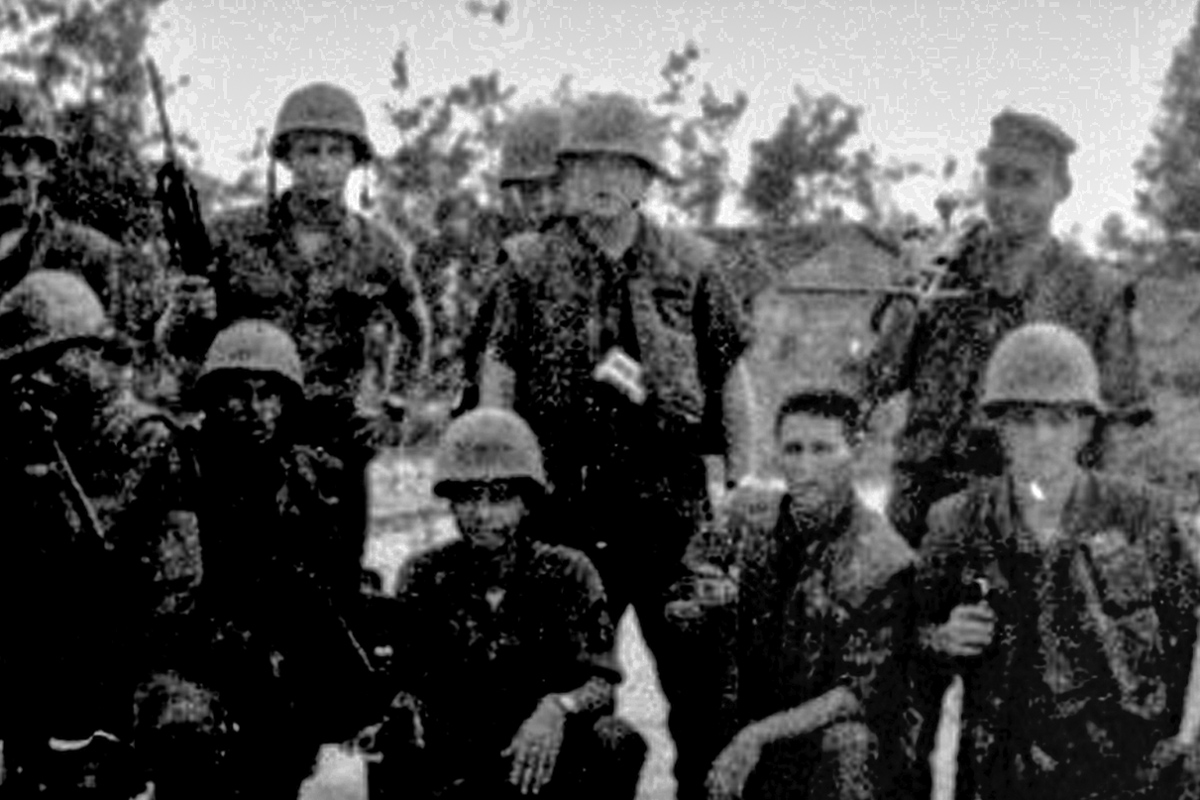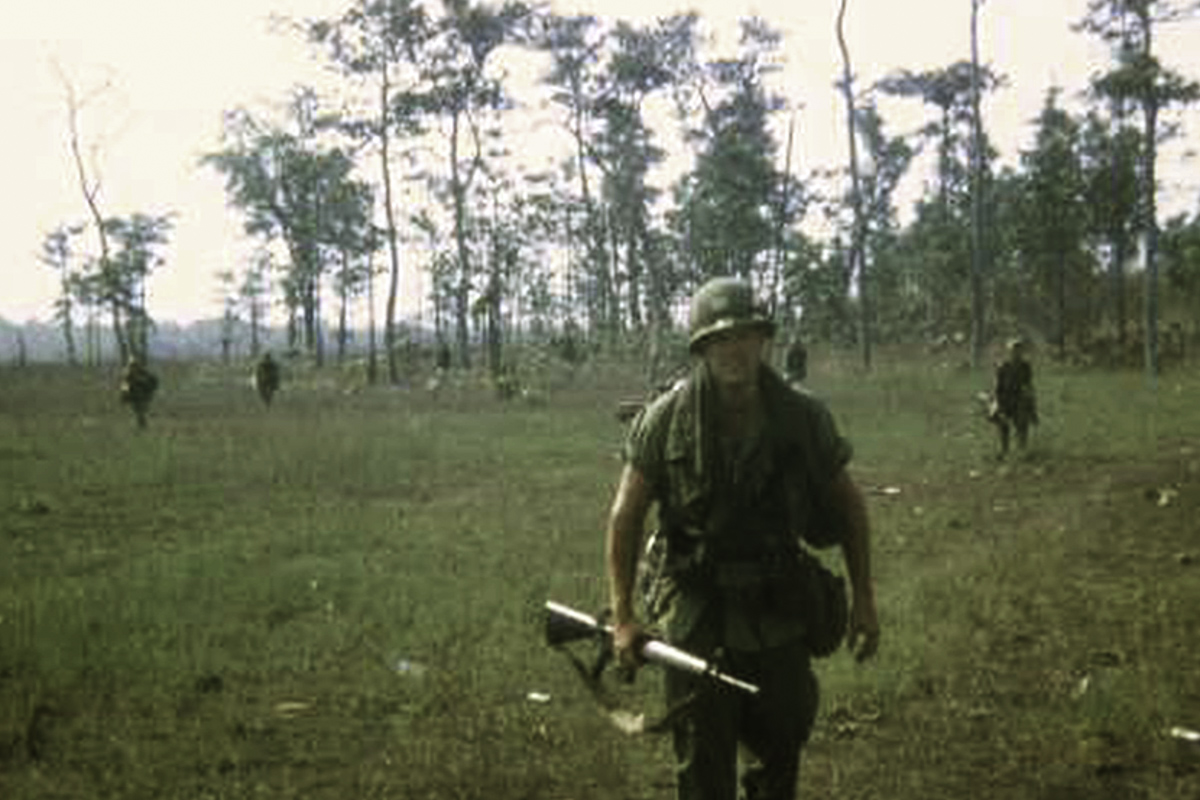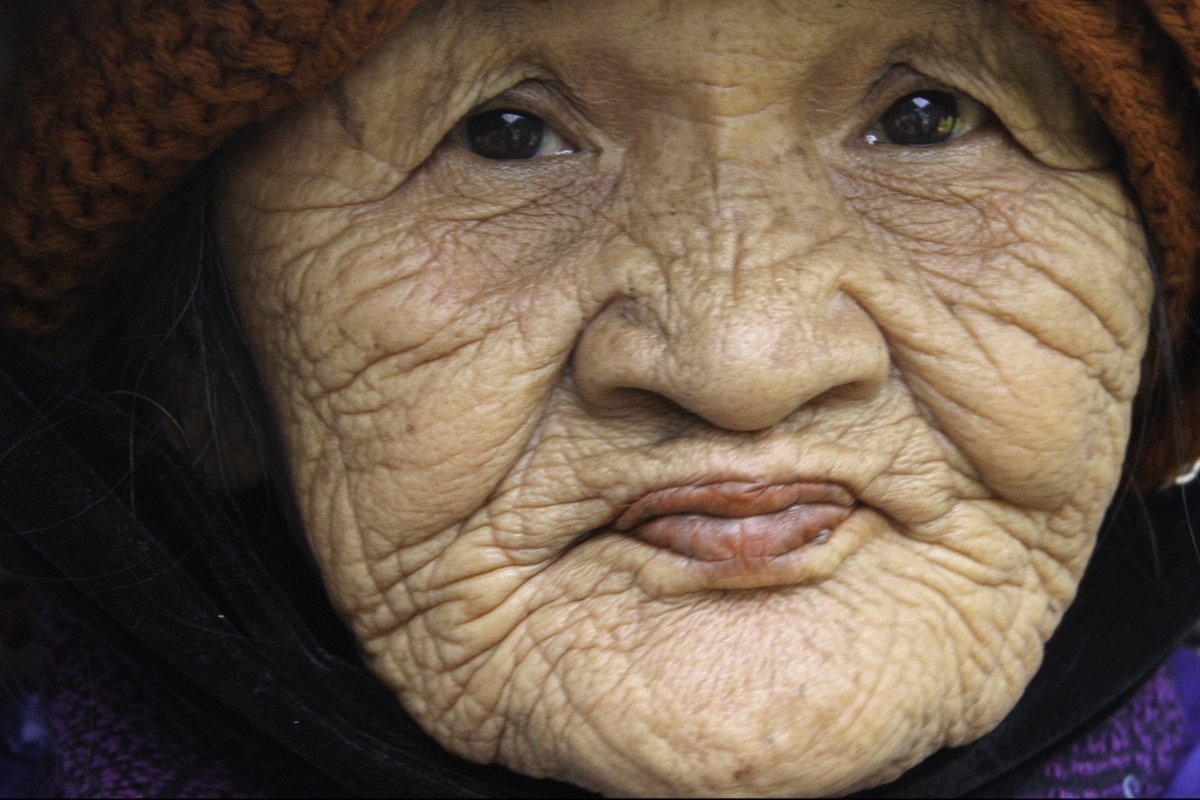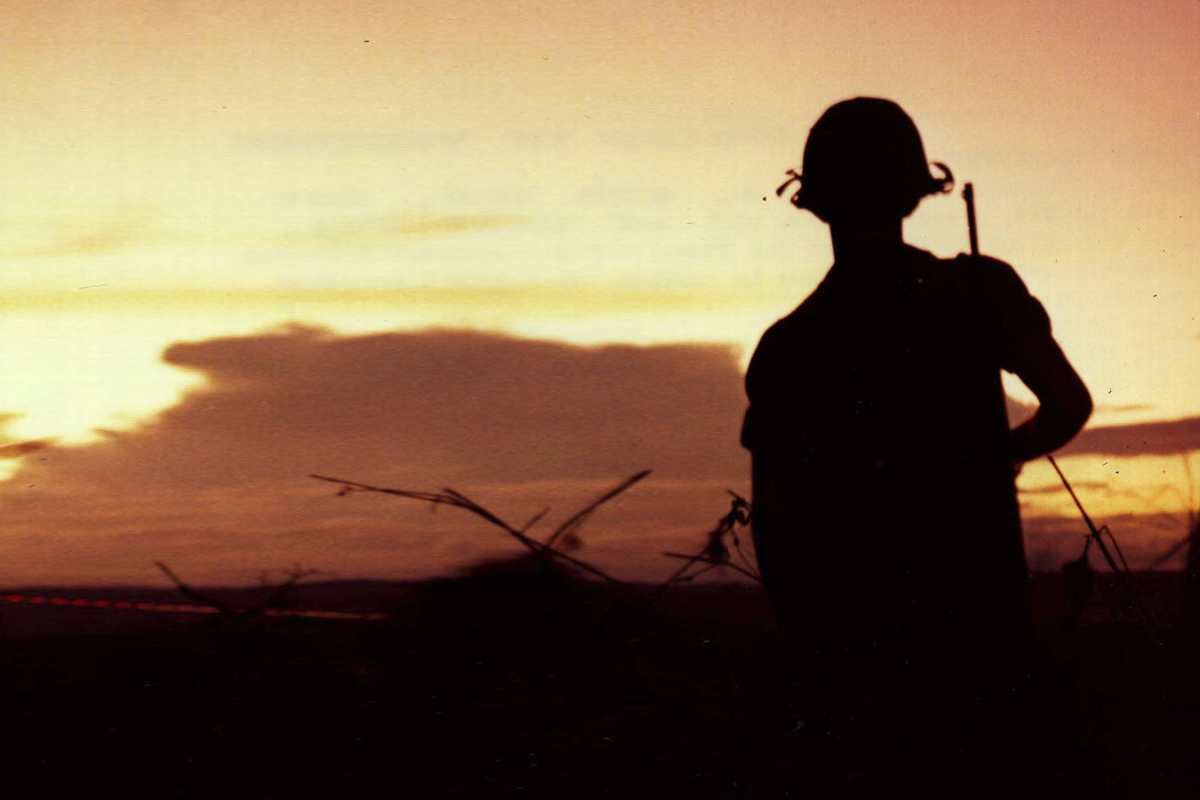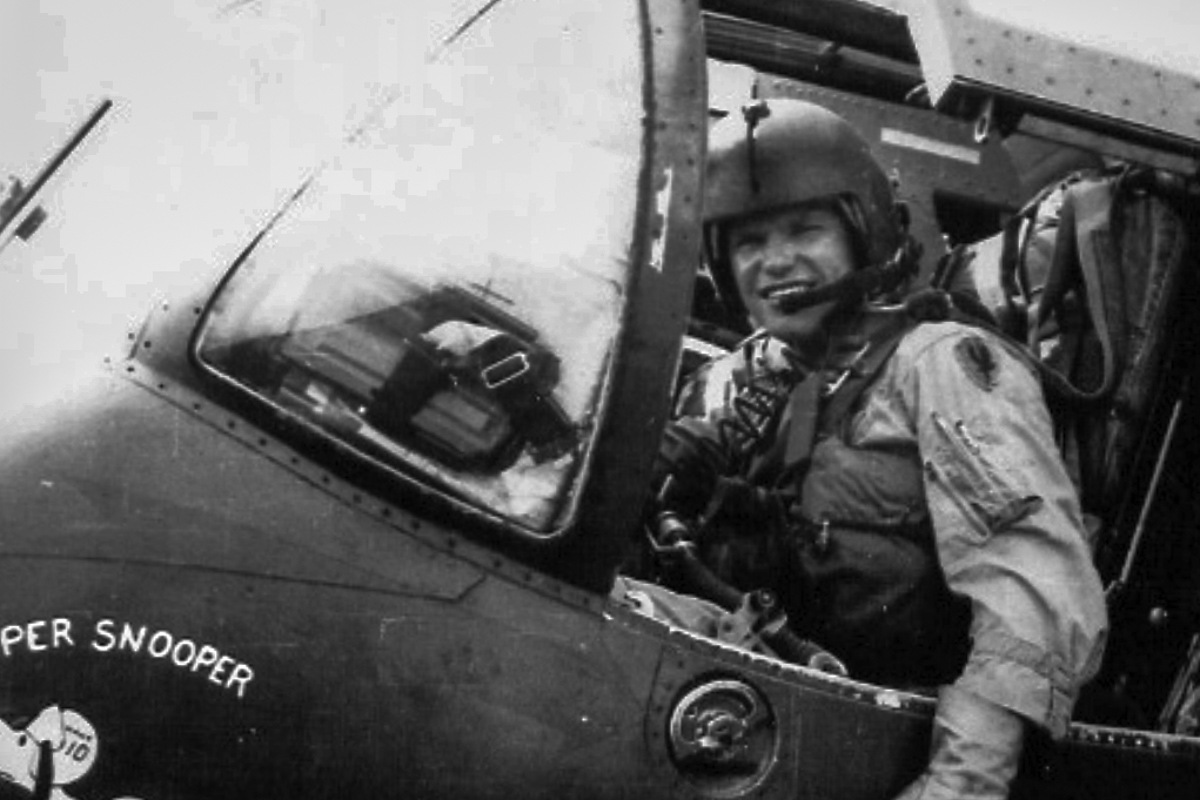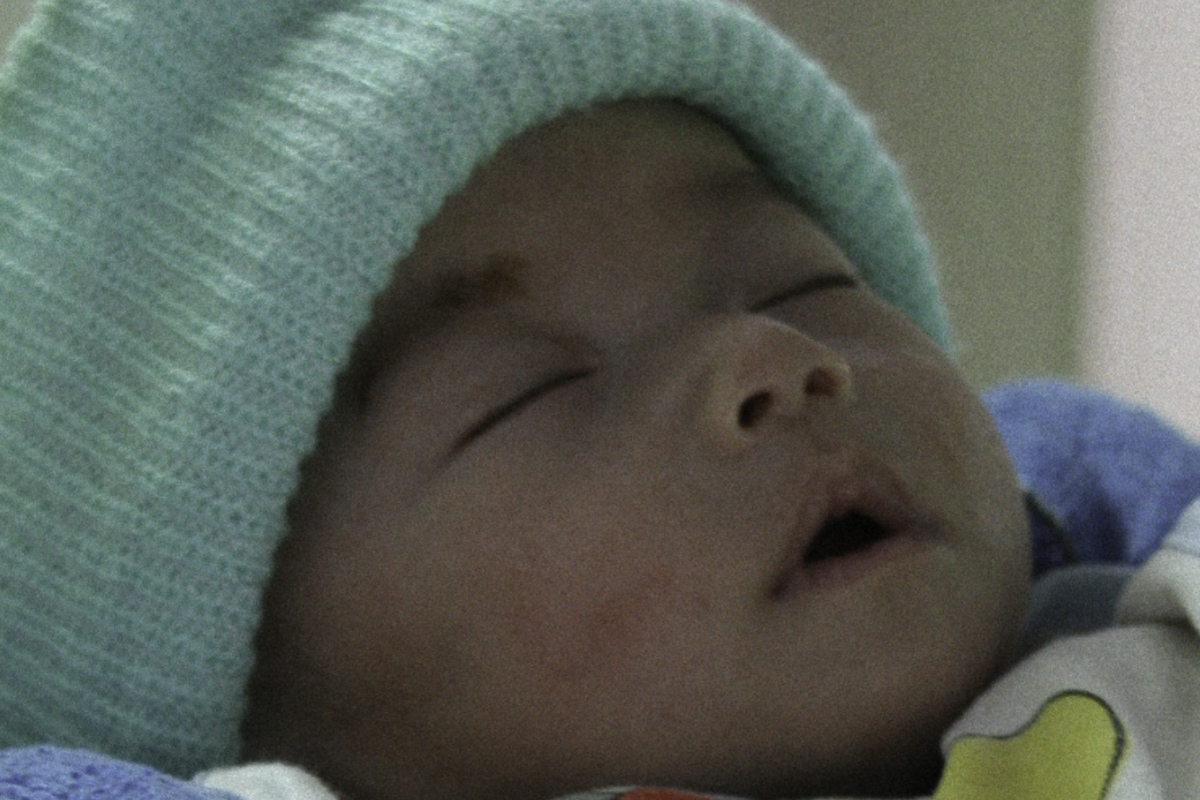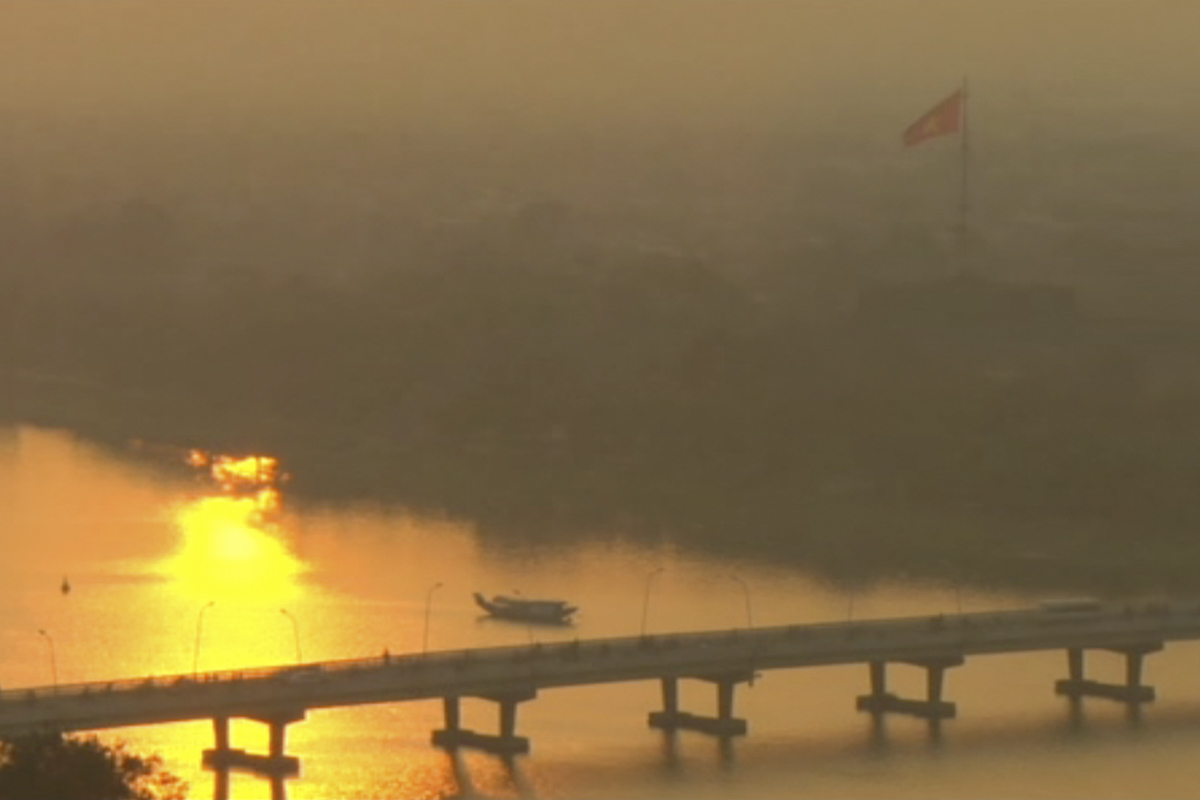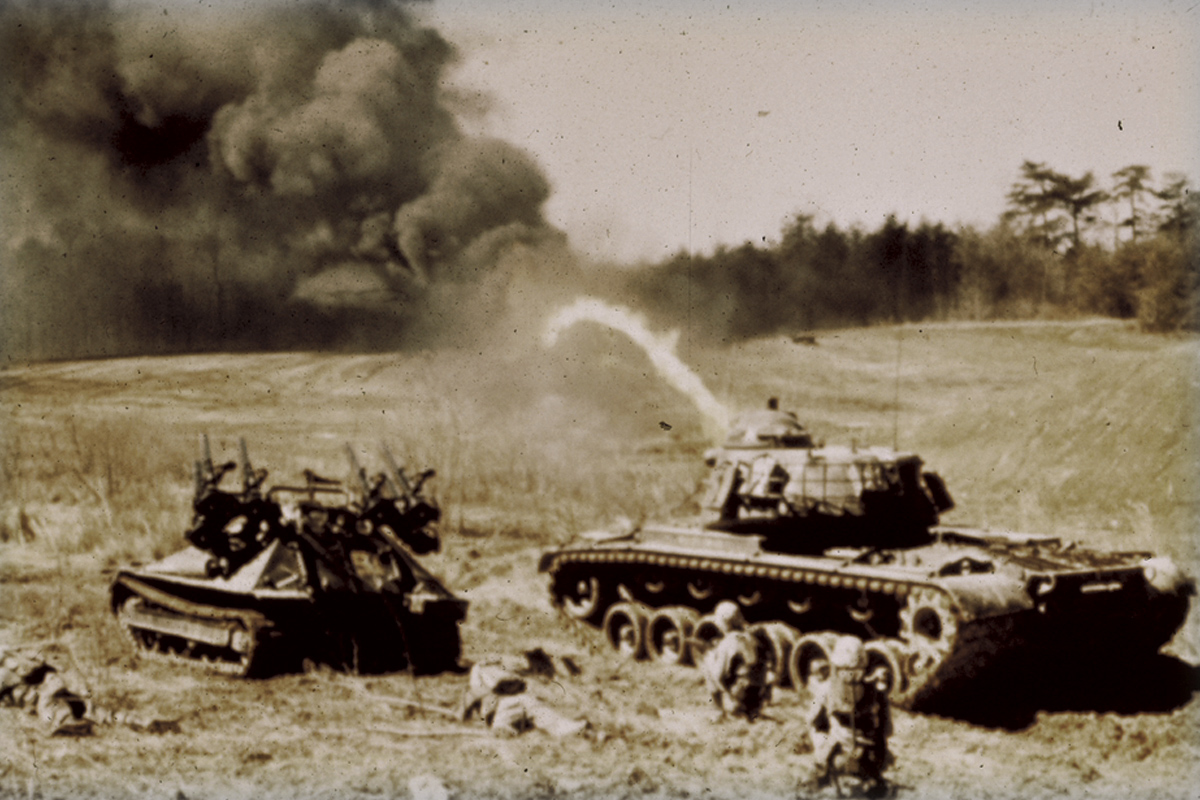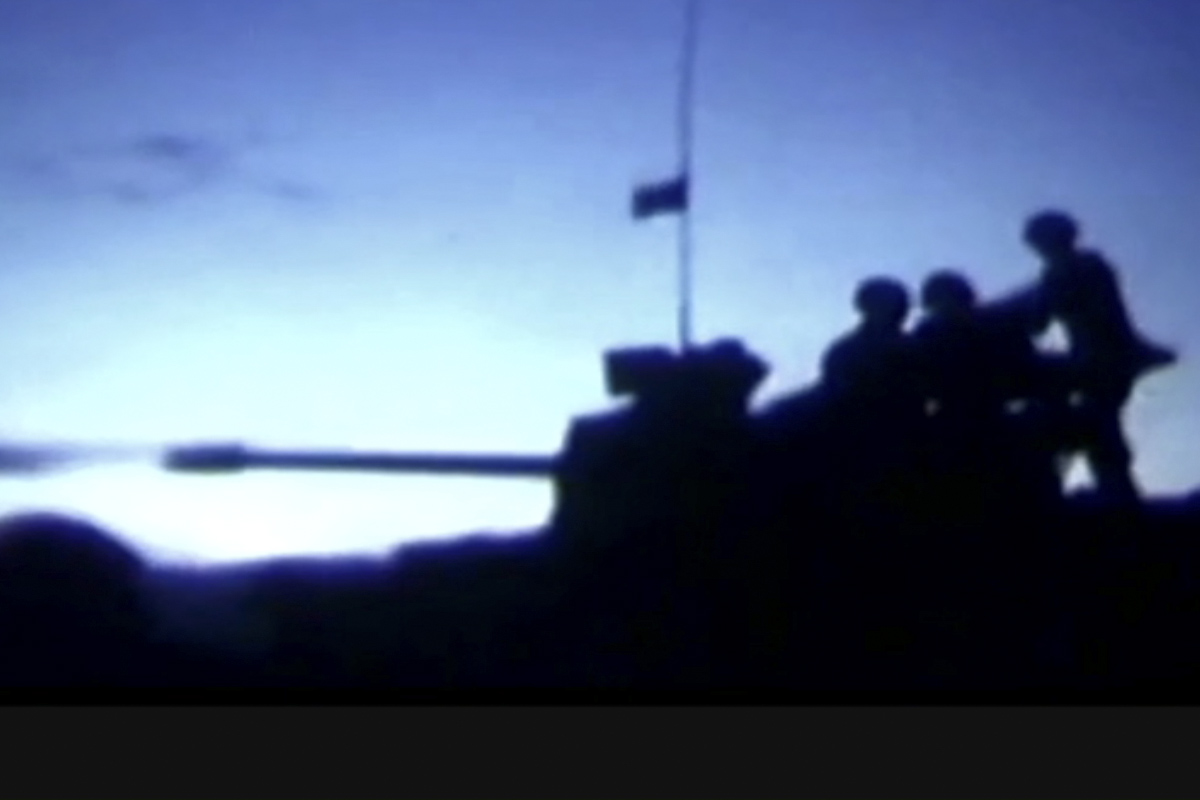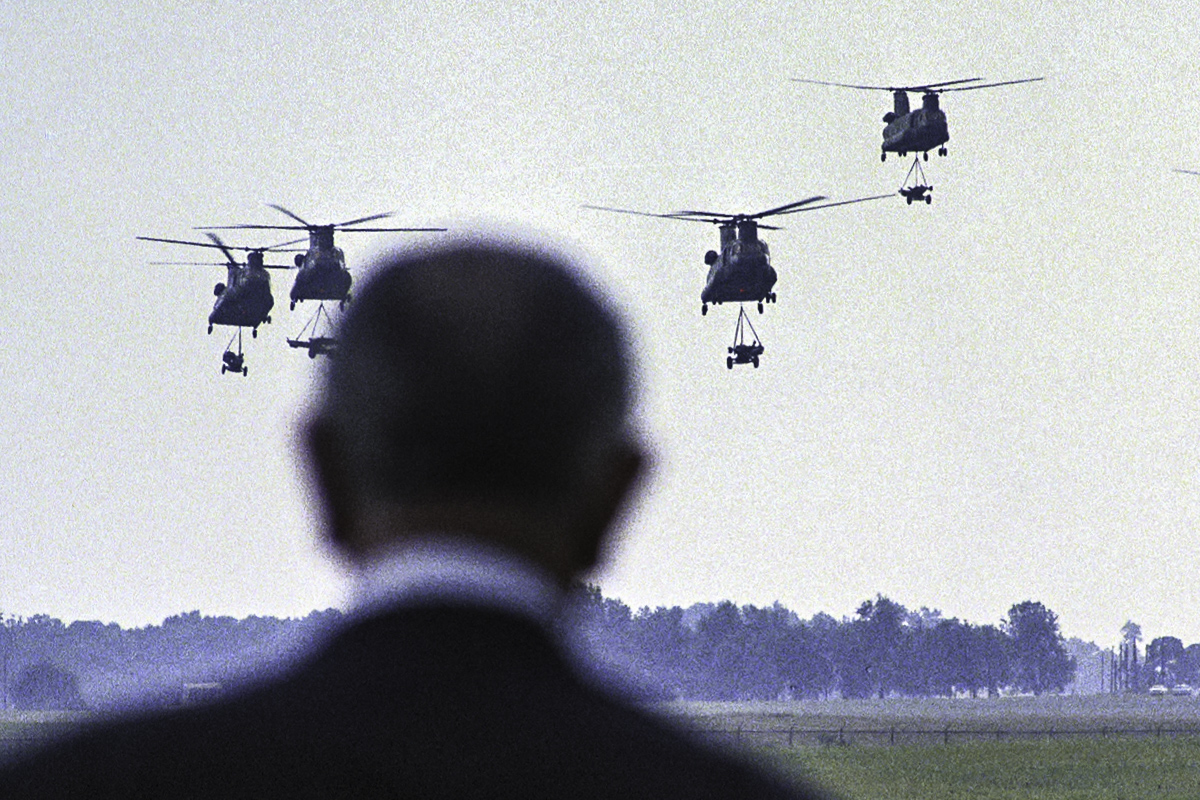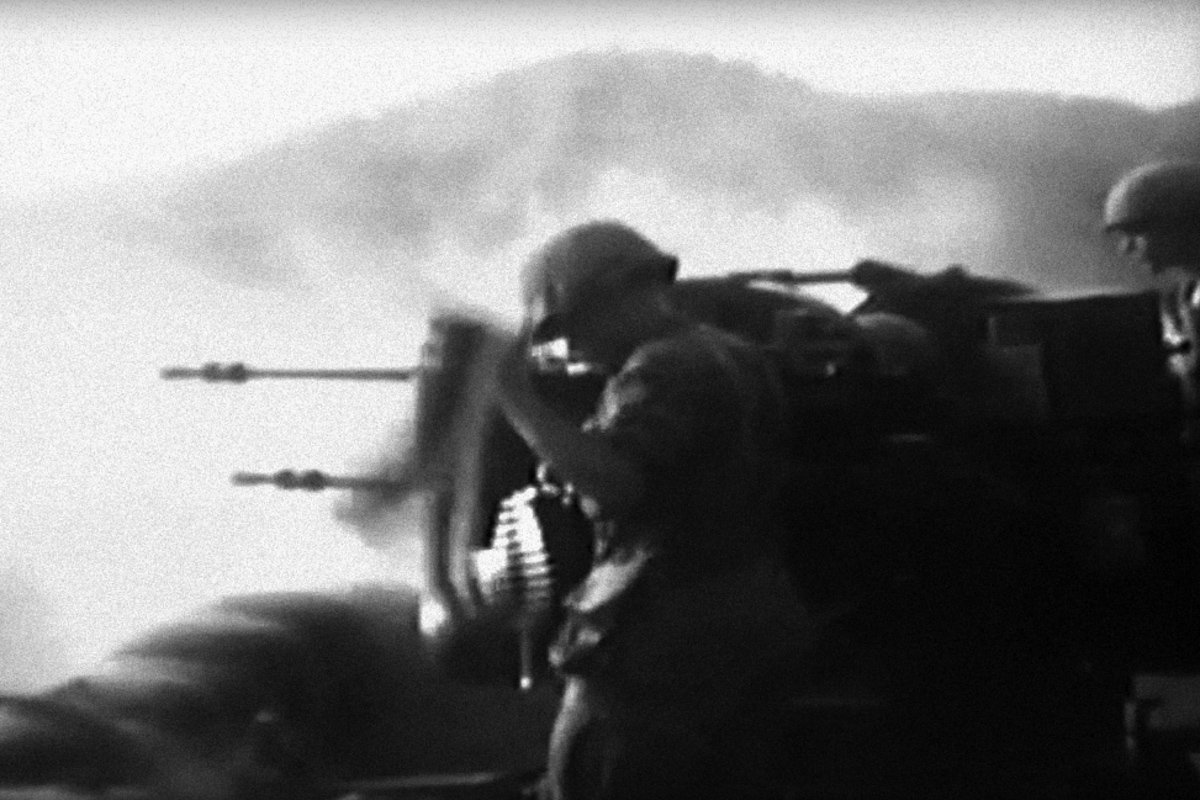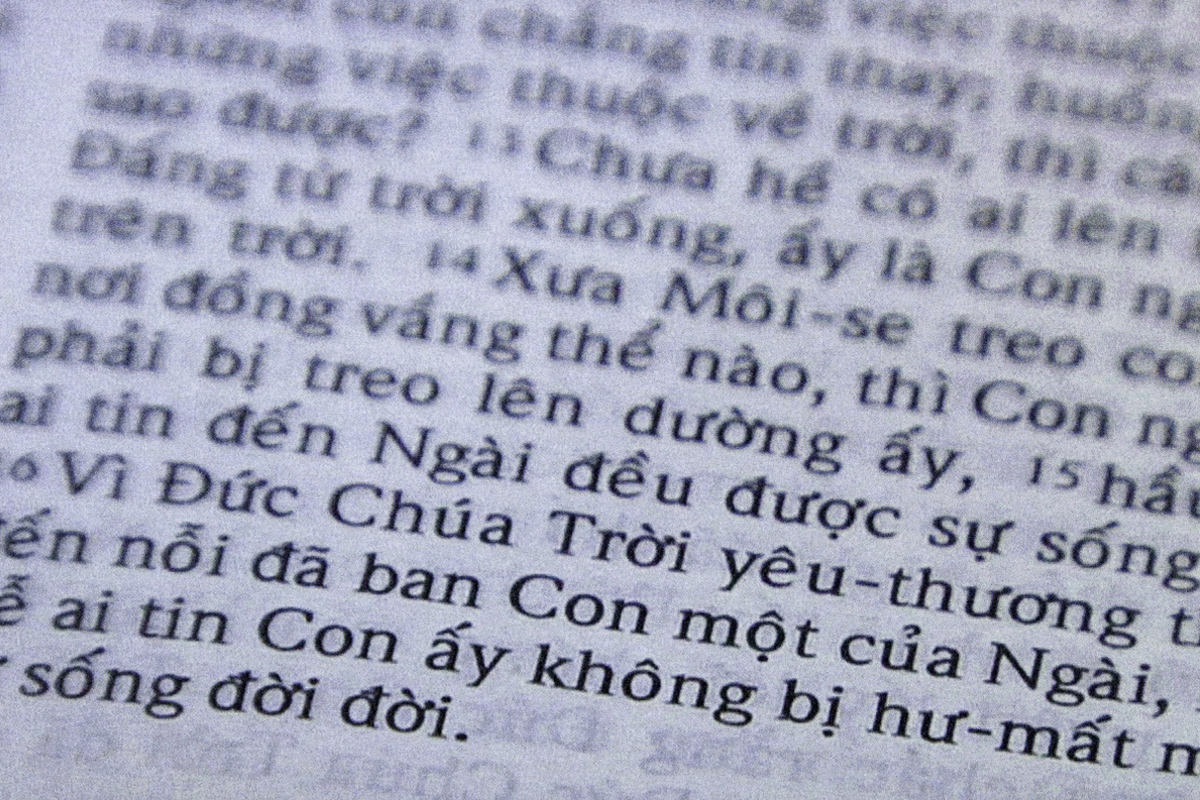
Bill Steele
Episode 10 — Reconciliation: With Self, Vietnam, and Former Enemies
Podcast: Play in new window | Download
Subscribe: RSS
SUMMARY: What does it mean to reconcile with yourself, with the country in which you fought, with your former enemies, and with your Creator?
TEASER — Bob Peragallo: Reconciliation is when two people resolve their differences and they actually begin to work together.
INTRO — Kent C. Williamson: The word “reconciliation” seems antiquated in this present age of divisiveness and polarization. It’s a word that has fallen from the common man’s lexicon into the pile of unused, unneeded, unspoken linguistic terms and expressions. In a world where friendships come and go, but where enemies can last a lifetime, it shouldn’t be surprising that “reconciliation” is seldom heard or spoken. After all, people might feel obligated to make and keep room in our vocabularies for such valuable phrases as “go to hell”, “F-you”, and “If I see you again before I die, it will be too soon.” But fortunately, that’s not the case for the Vietnam veterans we’ve been following in this series.
Welcome to the By War & By God Podcast, I’m your host Kent Williamson. This show is a companion series to the award-winning documentary film By War & By God. In the podcast we’ve been telling the remarkable accounts of people who’s lives were forever changed by the Vietnam war. You’ve heard stories of heroism, and stories of tragedy… and today we’ll hear some amazing stories of reconciliation, which, of course, is the result of a magnetic force that tugged and pulled and eventually drew these soldiers, medics, machine-gunners and crewman back to Vietnam for the purpose of serving some of the poorest of the poor in that beautiful country.
But before we jump into today’s episode, allow me tell you about Big Heaven Cafe. Big Heaven Cafe is the online store for Paladin Pictures. It’s the place to go to purchase any of Paladin’s films including the documentary By War & By God, so please click your way to Big Heaven Cafe dot com. That’s Big Heaven Cafe dot com and use the coupon code “podcast” to save five bucks on the By War & By God DVD. And don’t forget that 20% of all sales of By War & By God from Big Heaven Cafe go to the non-profit Vets With A Mission, the group that since 1989 has taken nearly 1400 Vietnam Veterans back to Vietnam for healing and what’s that word? Oh yeah, reconciliation.
In today’s episode we’ll see what reconciliation looks like. What does it mean to reconcile with yourself, with the country in which you fought, with your former enemies, and ultimately with your Creator? Alright, here we go…
Bill Steele: One of the most interesting things I experienced, there was a – there was a man on the team that I was on, who was a Vietnam Veteran, but had never really experienced closure.
Kent C. Williamson: This is Bill Steele…
Bill Steele: He had been involved in a battle on the Mekong Delta, where a number of the people in his outfit had been killed. And Bill was still struggling with that, and while we were over there, he got a chance to go up the Mekong Delta, and actually went to the spot where this ambush had taken place. And after he returned from the Mekong Delta, he called his wife and they had a conversation on the phone, and she said, “You have just given me the 4 sweetest words I have ever heard from you.” And he said, “I just said 3 words. I said, ‘I love you.’” She said, “No, you said something else. You said, ‘my war is over.'” And that was, that was really something significant to me to hear this man say that – that was closure for him. And so, he was able to make that reconciliation with his past, and I think that was significant.
DROP IN — Kent C. Williamson: In the 1800’s, an Americas great poets wrote a few lines called Reconciliation. Perhaps we can learn something from his perspective…
POEM: Reconciliation by Walt Whitman
WORD over all, beautiful as the sky!
Beautiful that war, and all its deeds of carnage, must in time be utterly lost;
That the hands of the sisters Death and Night, incessantly softly wash again, and ever again, this soil’d world:
For my enemy is dead—a man divine as myself is dead;
I look where he lies, white-faced and still, in the coffin—I draw near;
I bend down, and touch lightly with my lips the white face in the coffin.
Kent C. Williamson: What do you think reconciliation means? How would you define that?
Bill Steele: Reconciliation, I think has a couple of different interpretations as far as Vets With A Mission is concerned.
Kent C. Williamson: Again, Bill Steele…
Bill Steele: One obviously is I think that many of the veterans had the opportunity to reconcile with their past and to perhaps undergo a healing experience. And then there is the fact that we were at odds with this country. We were fighting one another, and now we’ve had the opportunity to be reconciled with them. To be able to help them – to help them overcome some of the difficulties that they’re experiencing in their country.
Bob Peragallo: Reconciliation and forgiveness are not the same thing.
Kent C. Williamson: This is Bob Peragallo…
Bob Peragallo: Jesus himself forgave everybody he ran into, but there’s not one person in the scriptures that ever asked Jesus for forgiveness. He automatically gave it. Reconciliation is more than that, reconciliation is when two people resolve their differences and they actually begin to work together. And our work in Vietnam could not be accomplished unless the government and the soldiers that we fought against allowed us to work together with them. We’ve accomplished some very powerful and dynamic things in Vietnam over the years, and that only came about because people that we met that we built relationships with partnered with us and allowed us to work with them in rebuilding and reestablishing—if it was health care or whatever it was in Vietnam that we were doing, orphanage work. So there was a partnering, and that’s what reconciliation is.
Cal Dunham: Reconciliation to me, as I look at what we’ve done in Vietnam, I have seen 2 or 3 things really that stand out.
Kent C. Williamson: This is Cal Dunham…
Cal Dunham: I have seen reconciliation with just the people of Vietnam. Those that we’re serving – when we’re helping them, we’re just looking at each other as people that are helping each other. So I see a reconciliation there. I don’t see an animosity of them toward us or us toward them. I have seen reconciliation with former enemies, where we have sat down at a table for dinner together. VC, NVA sitting on one side of the table, and a bunch of us sitting on the other side of the table. Just, in our way that we can communicate through interpreters or through broken english or whatever – being able to talk to one another. And I see the realization from both sides of that table. From the – by the end of the evening that we all had a mission, but now quite frankly – we’re just a bunch of old farts sitting there having a beer together and talking about the old days. For me – I have never seen anything, “Oh man I can’t wait to get out of here.” I just sit there and say, “Hey, this is great. This is great, ’cause – hey, we did what we did. And we both were doing it because – for whatever reason, our governments were telling us, ‘this is what we’re gonna do.’ But now, that’s all behind us. Let’s just have a good time.” And then the third part of that reconciliation, I’ve seen – I know, because it happened to me. I was able to reconcile in my own heart and mind some guilt that I had. Such a strong negative attitude toward the Vietnamese themselves – not just soldiers, but everybody. I’ve been able to reconcile that. There’s been a reconciliation in my own heart and mind, my soul, about the people of Vietnam. So that’s what it means to me, those – basically those 3 areas.
Kent C. Williamson: Define reconciliation for me. What does that look like?
BREAK — Kent C. Williamson: But first, Do you know that you can go to Vietnam with Vets With A Mission? Yes, you! Whether or not you’re a Vietnam veteran, whether or not you’re a medical professional, you can experience some of the thrill of serving, of caring for the people in the rural villages of that beautiful country. You can experience reconciliation for yourself. Learn more about the upcoming trips at Vets With A Mission dot org and start making your plans today. Alright, back to the show…
Kent C. Williamson: Define reconciliation for me. What does that look like?
Dave Carlson: Reconciliation to me means – taking people who have diametrically opposed vision or purpose…
Kent C. Williamson: This is Dave Carlson…
Dave Carlson: …but finding those parts of what they are or what they do that can be aligned to work in tandem to go forward. We all know that two opposing forces meet, they don’t go anywhere, they just sit there and grind. But somehow, even people who are diametrically opposed at some point, can find a place where they agree, and where they can become brothers. And can make positive movement. And those two opposing forces go alongside, and move in a positive direction. That to me is one definition of reconciliation – there’s a lot of different ones. But in this case, we have former combatants who would actually sit down with each other and plan out what they could do to both improve the country, and improve the lives of the people who are the children of those that they fought. And that to me is reconciliation.
Kent C. Williamson: What does reconciliation mean?
Jim Proctor: When I talked to Bill Kimble in the early years, and some of the early board members, it was a two pronged process.
Kent C. Williamson: This is Jim Proctor…
Jim Proctor: They wanted to reconcile to some extent – especially the Vietnam Vets, with their experience over there, with the people. And at the same time, they wanted their people to recognize that there was a further reconciliation. And that’s reconciliation with Jesus Christ. And because Vets With A Mission has worked in a communist country, we sometimes have to downplay or be a little bit more discreet in the reconciliation of Jesus Christ. I think that’s where – just working one on one, or working on a project with someone – establishing a relationship is. I think for some of the Vets that have gone over there, it has certainly helped them to reconnect with the people, to see areas that they may have served in. I am so thankful that I didn’t have to fight a war over there. And it’s interesting when I’ve asked veterans – friends of mine if they want to go back, there’s no middle ground. There is either, “I’ve always wanted to go back, I love the people, I love the food, the country was beautiful.” Or there are people that don’t even want me to finish the question in a sentence. They’d say, “No way do I ever want to go back.” And I’m sure that’s related directly to their experience and what they experienced in the Vietnam War. And I have seen people that have had a certain hesitancy on these trips going back. They don’t know what to expect. And I know that that’s been important for them to go back there and see that, and see where they were at, and experience that again. And that helps them. It helps them with the issues in their life.
Bob Peragallo: I met a man in the Que Son Valley who – a Mr. Som. And he was the chairman of the People’s committee.
Kent C. Williamson: This is Bob Peragallo…
Bob Peragallo: And we built one of our early clinics in the Que Son Valley. And to do that there’s a lot of meetings that have to be attended, there’s a lot of preliminary handshaking. We have to have a beer together, we meet the People’s committee.
DROP IN — Kent C. Williamson: The clinic that Bob Peragallo helped build for Mr. Som’s commune was the one he told us about in last week’s episode. As you recall, the area had a childbirth death rate of 33% and after Vets With A Mission’s clinic opened the death rate during childbirth dropped to just 3%.
Bob Peragallo: And we were having dinner together with the members of the People’s committee and a small group of us from Vets With A Mission. And we shook hands, and Mr. Som had a wooden leg, and I asked him how he lost his leg, if he’d lost it in a war. And he said, “Yes,” that a – he got shot by a machine gun. And so, we sat down and through the interpreters we were having this communication. And I told the interpreter I said, “Would you tell Mr. Som that I was a machine gunner. And the interpreter didn’t want to do it, and it got real quiet and everybody got hushed. And the Vietnamese around us through the interpreter knew what was going on. And finally I just said, “Tell him.” And so he told Mr. Som that I was a machine gunner and that I served in the Que Son Valley with the 9th marines. And I looked over at Mr. Som, and he smiled and kind of grinned a little bit, and then I told the interpreter. I, I said that, “I’d like to see how Mr. Som that I might have been the one that shot his leg off. And I don’t want to say that I’m sorry for doing that, but I want Mr. Som to know and understand that the war is over and at one time we – we could have been and probably were former enemies, and engaged in combat. But now we’re here together, working together to improve the quality of health care for his, for his commune. And Mr. Som stood up, and he shook my hand. And Mr. Som hugged me. And we embraced each other, and that was the dynamic moment in my Vietnam experience with Vets With A Mission.
When I talked with Mr. Som, in my experience with him. I know that I had forgiven him as an enemy before I ever spoke anything, before it had ever come out of me. It was something that happened deep inside of me, and the end result was that we embraced. And as as fellow warriors there was an honor, and there was something between us.
Chuck Ward: You may or may not know, but the founding scriptural foundation for Vets With A Mission, is 2nd Corinthians 5:18 – which is the Ministry of Reconciliation.
DROP IN — Kent C. Williamson: Nearly 2000 years ago, the Apostle Paul wrote a couple of letters to the people who were the church in the town of Corinth. In his second letter he wrote the part that Chuck Ward referred to which says this… “if anyone is in Christ, he is a new creation. The old has passed away; behold, the new has come. All this is from God, who through Christ reconciled us to himself and gave us the ministry of reconciliation; that is, in Christ God was reconciling the world to himself, not counting their trespasses against them, and entrusting to us the message of reconciliation. Therefore, we are ambassadors for Christ, God making his appeal through us. We implore you on behalf of Christ, be reconciled to God. For our sake he made him to be sin who knew no sin, so that in him we might become the righteousness of God.
Chuck Ward: So Vets With A Mission has always been about reconciling people to one another. And in this context, country to country, Vet to Vet. And I’m talking about Americans, South Vietnamese, the Viet Cong, NVA. And I’m talking about people of Vietnam to the people of the United States. And most importantly, being reconciled to God. So Vets With A Mission, for many years would take American Veterans and introduce them to Viet Cong and NVA veterans at what we call reconciliation dinners. And it’s always very tense when those dinners start. But 99.9% of the time, the Veterans on each side of that table – by the time that dinner is over, they’ve got this special bond. And it’s not about winning the war or killing your enemy. It gets down to the lowest common denominator. Men begin telling one another, “I was just doing my job. I was doing what I was told to do. And I didn’t necessarily like it, but I did it, because I wanted to serve my country.” And soon these men who have issues – I mean, no one goes to war that they come back the same person, it just doesn’t happen. They begin to share, and it’s a very emotional time, and reconciliation becomes real. Because men who would have never thought of talking to one another – are talking about their families, talking about their children, talking about, “Let’s have a beer together, let’s get in touch, let’s keep in touch.” It takes place. And one of the most wonderful things about reconciliation is, you know, a lot of people struggled with Vietnam, particularly the Vets who served there. And through reconciliation, this is what happens. So many are stuck in the past, and they have so many terrible memories. And I like to make the analogy that Vietnam is like the pig in the pigsty. You’ve got the pig, and the pig is happy to be wallowing in that mud and filth and everything. And so, I make the analogy that – Vietnam is the pig, and you can go in there, and you’ve gotta wrestle with that pig – and you’re gonna come out smelling and looking like you know what. But that pig is gonna come out smiling and feeling good about itself. So why let Vietnam – why wrestle with the pig of Vietnam, and let it have that effect on you? Let it run your life, ruin your life. It’s time to move on. And through reconciliation, that’s what happens. Vets go to Vietnam with Vets With A Mission. They meet their former enemy, they meet the people. And reconciliation comes full circle from the terrible memories of 1968 or 1969, to discovering the war is really over. And through reconciliation, that war within is finally over. And when I see Vets – when that lightbulb goes off, when they’re in Vietnam on one of our teams, and they realize the war is over – not only there, but over inside. It makes – that is a great day to be in Vietnam, on a Vets With A Mission Team.
Kent C. Williamson: One more time, Bob Peragallo…
Bob Peragallo: When the scriptures talk about God reconciling the world to himself. It’s not just that he forgave us of our sins. It’s us learning to work together with Him for the purpose of establishing His, his kingdom. We become partners with Him, and reconciliation is that. That we learn to work together—former enemies that were trying to kill each other, now are working together to build and repair the tragedy of war. The tragedy of, of such a, a horrible experience, out of it comes something that’s positive and good.
CLOSE & CREDITS — Kent C. Williamson: Thank you for listening to this episode of the By War & By God Podcast from Paladin Pictures. You can learn more about By War & By God at By War And By God dot com. Don’t forget to use the coupon code “podcast” at Big Heaven Cafe dot com to save five bucks on your copy of the film. You can also watch By War & By God for free if you have an Amazon Prime account.
You can find me on Facebook or Twitter. Just search for Kent C. Williamson and while you’re there search for By War & By God and like or follow us. Please email your thoughts about the show to Kent at By War And By God dot com.
The By War & By God Podcast is written and produced by me Kent C. Williamson with Sound Design and Finishing by Ashby Wratchford. Our Audio Engineer in the studio is Steve Carpenter… except he’s missing today, so I don’t know if we need to credit him. Thanks also to my brother Brad Williamson who helped record the interviews in today’s episode.
Special thanks to Trevor Przyuski for his wonderful reading of the Walt Whitman poem Reconciliation. Thanks Trevor!
The By War & By God soundtrack was composed by Will Musser and for a limited time you can download the soundtrack for free at By War And By God dot com.
Thank you to the entire Paladin Team which includes Leslie Wood, Steve Carpenter, Dan Fellows, and Ashby Wratchford.
This podcast is a production of Paladin Pictures. Yep, Paladin is a film production company that sees the value in audio podcasts. Why? Because like is the case with By War & By God… the podcast can go deeper into the story than the film ever can. Paladin Pictures is committed to the creation of redemptive entertainment and thought-provoking cultural critique. Learn more about us and our films at Paladin Pictures dot com. That’s Paladin P-A-L-A-D-I-N Pictures dot com.
By War & By God is produced at the Paladin studio in the amazingly wonderful, beautiful little town of Charlottesville, Virginia.
And of course, thank you to our Veterans… those who returned… and especially those who didn’t. Like my wife’s Uncle Floyd. Thank you!
EPISODE 10 – Reconciliation: With Self, Vietnam, and Former Enemies
PLAYERS: Dave Carlson, Cal Dunham, Jim Proctor, Bob Peragallo, Bill Steele, Chuck Ward, and host Kent C. Williamson
SUMMARY: What does it mean to reconcile with yourself, with the country in which you fought, with your former enemies, and with your Creator?
LINKS:
Big Heaven Cafe – Save $5 on the DVD of By War & By God with the coupon code “Podcast”
By War & By God Soundtrack – Download the original soundtrack to the film for free!
Episode 09 — The Amazing Impact Of Vets With A Mission
Podcast: Play in new window | Download
Subscribe: RSS
SUMMARY: Vietnam veterans describe the impact they have in Vietnam through their work with Vets With A Mission, but we also hear about the impact that Vietnam now has on them.
TEASER — Cal Dunham: I tell you, a smile goes a long way. I can be hot and sweaty and miserable, but when that person looks at me and smiles, and in their smile they’re saying “Thank you”. It doesn’t get any better than that.
INTRO — Kent C. Williamson: One of the definitions of the verb “impact” reads, to “have a strong effect on someone or something.” The Vietnam war had an impact on our veterans. A handful of these veterans returned to Vietnam and had an impact on the people of Vietnam. The people of Vietnam then, in turn, had an impact on these veterans.
Welcome to the By War & By God Podcast, I’m your host Kent Williamson. This show is a companion series to the award-winning documentary film By War & By God. And, by the way, I’m very pleased to announce that just this week we won another one. We picked up the Best Documentary Short Film Award at the Bare Bones International Film & Music Festival in Muskogee, Oklahoma. Thank you Bare Bones! This season on the podcast we’ve been telling the remarkable accounts of people who’s lives were forever changed by the Vietnam war. You’ve heard stories of heroism, and stories of tragedy… and soon we’re going to hear some amazing stories of reconciliation, which, of course, is the result of a magnetic force that tugged and pulled and eventually drew these soldiers, medics, machine-gunners and crewman back to Vietnam for the purpose of serving some of the poorest of the poor in that beautiful country.
But before we jump into today’s episode, let me tell you about Big Heaven Cafe. Big Heaven Cafe is the online store for Paladin Pictures. It’s the place to go to purchase any of Paladin’s films including your copy of the documentary By War & By God, so please click your way to Big Heaven Cafe dot com. That’s Big Heaven Cafe dot com and use the coupon code “podcast” to save five bucks on By War & By God. And remember that 20% of all sales of By War & By God from Big Heaven Cafe go to the non-profit Vets With A Mission, the group that since 1989 has taken nearly 1400 Vietnam Veterans back to Vietnam for healing and reconciliation.
Today, we’ll learn about The Amazing Impact of Vets With A Mission. And we’ll also learn about the impact that the impact has had on those doing the impacting…
Kent C. Williamson: Of your seven trips back to Vietnam with Vets With A Mission, what would you say is your best memory?
Pat Cameron: Well, the best memory is the first trip…
Kent C. Williamson: This is Pat Cameron…
Pat Cameron: The Lion’s Club had given me about 10,000 pair of eyeglasses and quite a few pair of sunglasses. And we were going to start seeing patients. And I was going to go through all the eyewear – separated the mens and ladies and children – and I was going to be able to try to match that prescription up as close as I could. And provide them with some eyewear so they could read and see. I had this feeling that maybe something cool – something neat’s going to happen. Maybe the Lord going to do something to really show me a miracle. Here I am asking for a miracle. And it’s my first time over there. Well it’s five o’clock their time – we’re getting ready to – we’re seeing our last patients. And the last patients is a 7-year old girl. Tim came downstairs with her mother and said, “I doubt we can do much for her, Pat” And he handed me that prescription and it was for bottle-cap-type glasses; about +10 power. And he said, “I know you ain’t got anything.” I went over there and there was a set of kid’s glasses that were bottle-caps, +10’s, within very close to her prescription. And I pulled those out – I looked at them but I ain’t got no idea how them glasses got in there. And I put those glasses on that little girl and – her eyes were already a little large for the – with the eyewear but they got huge. And she said something in Vietnamese to her mother and her mother looked over at me and started crying. And my translator said, “This child has never seen her mother. And she never seen anything except blurriness – pretty much light, dark, and blurry.” She could see leaves, she could see – she’d never seen stars. She’d never seen her daddy or her sisters and brothers. And if that ain’t a miracle, there never going to be one. I sit there and cried with her mother. That life of that child and that family – and maybe that whole village when they heard the stories – changed. It changed me. That made it perfectly clear to me why I was sent. And that’s probably why I’ve come back so many times. Because I know that every time we go back we can make an impact. That’s a moment that will never leave me. I’ve told the story a number of times to people. It’s just a cool story. Just a cool story.
Kent C. Williamson: Tell me about your best day with Vets With A Mission.
Steve Scott: They’re all good. It’s all good.
Kent C. Williamson: This is Steve Scott
Steve Scott: I am most comfortable when I’m hot and sweaty and out in a Montagnard village with people that I know need my help.
DROP IN — Kent C. Williamson: A leftover term from the French Colonial era in Vietnam, Montagnard means “people of the mountain”. These indigenous people groups occupy the Central Highland area of Vietnam. Influenced by French Missionaries during the 19th century and American missionaries during the 1930’s many Montagnards converted to Christianity. This caused them to be viewed as suspect by North Vietnamese forces during the Vietnam War. Estimates are that over 40,000 Montagnards fought alongside the American forces, but when America withdrew from Vietnam in April of 1975, these Montagnards were left to defend themselves. As a result, many were put to death by the communist regime while many others fled the country in an attempt to save their lives.
Steve Scott: I am most comfortable when I’m hot and sweaty and out in a Montagnard village with people that I know need my help. Be it a seven year old that needs a heart operation – and I’m the guy. I do triage, so I see these people first. First person that sees them, and sometimes I’ll have this kid come in with club nails and they’re cyanotic, and I know full well they need heart surgery and I’m the guy that can send them to the doctor and get it started and we can save that kids life. So, I mean, that’s priceless. I also feel just as good if an old lady comes in and she’s got aches and pains and I can talk to her, and I can speak enough Vietnamese to talk to her and find out that – you know, I can relieve her pain. I can make her feel better when she goes home. So, yeah, those are the priceless things. So, I don’t particular care for staying in the four star hotels, or any of the tourist stuff anymore. I’ve been there, done that. I really like to go out in the villages. I suppose, if I could do anything I wanted, I’d just be the barefoot doctor who wanders around Southeast Asia with a backpack full of medicine.
Jim Proctor: I would say that my best day in Vietnam’s probably one of the hardest days in Vietnam.
Kent C. Williamson: This is Jim Proctor…
Jim Proctor: I was working security. Again, it’s a communist country, they’d pretty much decide who can come in and who can’t come in. And they have to have the right paperwork and everything. And it was very tough when you could see the desperation in some of these people’s faces. That they wanted to get in and they wanted to see the American doctors. And they had an issue, and they wanted to get healed. We could only let certain people in, and that was very tough. And there were – sometimes ladies that looked like they were in their 80’s, certainly maybe in their 60’s and 70’s crawling over barbed wire fences, or trying to get over the gates with the little pointed arrow type things that are to keep people out. And actually having to pick them up and put them outside of the gate because they couldn’t get in. And that was, that was tough – but at the same time, that is something that has stuck with me. It really affected how I felt about it, and the desperation, and can relate to that. And so, while that is one of the – probably the toughest day, I think it was one of the best in the fact that it really humanized that for me. We’re affecting people’s lives.
Bill Steele: The people who were able to take advantage of what we were offering had been invited by the Vietnamese government to come. They had to have it – it was invitation only. And this lady showed up and she didn’t have an invitation.
Kent C. Williamson: This is Bill Steele…
Bill Steele: She had a little baby with her, a little girl that was probably a year, year and a half old that was sick. And she wanted medical attention for this child. And she saw me, and she knew I had to be somebody, because I obviously wasn’t Vietnamese. And she came up to me, and she approached me – because we couldn’t communicate language-wise, but she helped me to understand that she needed medical attention for her child. And I felt – I was able to take her to one of the Vietnamese doctors and to explain the situation, and get the child looked at. And it just, it was so heartwarming I think to be able to do a little something that was perhaps above and beyond the call of what we were supposed to be doing there.
Kent C. Williamson: What would you say is your best experience with Vets With A Mission?
BREAK — Kent C. Williamson: But first, Do you know that you can go to Vietnam with Vets With A Mission? Yes, you! Whether or not you’re a Vietnam veteran, whether or not you’re a medical professional, you can experience some of the thrill of serving, of caring for the people in the rural villages of that beautiful country. Learn more about the upcoming trips at Vets With A Mission dot org and start making your plans today. Alright, back to the show…
Kent C. Williamson: What would you say is your best experience with Vets With A Mission?
Cal Dunham: My best experience with Vets With A Mission…
Kent C. Williamson: This is Cal Dunham…
Cal Dunham: As strange as this sounds – the joy of carrying a little old lady – or a man, or a little boy, that needs to get up the stairs to see the doctor. Or get down the hallway to see the doctor in the clinic. Of picking them up and holding them, to get them where they need to get, if they can’t do it on their own. And they just look at you, and smile. I tell you, a smile goes a long way. I can be hot and sweaty and miserable, but when that person looks at me and smiles, and in their smile they’re saying “Thank you”. It doesn’t get any better than that.
Kent C. Williamson: As you recall from last episode In the early days of the organization, Vets With A Mission, helped build a therapy pool for a polio orphanage in Saigon. This is Roger Helle…
Roger Helle: We met a couple that were married with two children.
Kent C. Williamson: Both the husband and the wife had polio.
Roger Helle: There was just something about the, it was actually the husband. Here he is, he’s got polio, his children did not. And so, I asked them, where they met – and they had met at the orphanage when they were children.
Kent C. Williamson: The same orphanage in Saigon where Roger had been years before.
Roger Helle: For years now I carried little happy face stickers in my pocket. And so I looked at them and said, “When you were a child, do you remember some Americans coming to your orphanage?” And I held up one of the little stickers and both of them, their eyes just got big and they said, “Yes.” And I said, “That was us.” And just the fact that, full circle, 20 years later -because of an act of kindness – we couldn’t share the gospel in words. I think it was Francis of Assisi said, “Preach the gospel, and if necessary use words.” And while we could not use words to share the love of Christ, we did it in acts of kindness. And here was that couple 20 years later that had come full circle. And we had come full circle as a ministry – and that was probably one of the most exciting days that I can remember. You know, he had the same smile he had when he was a 10 year old kid. And here now, they were believers and they were going to a church that Vets With A Mission supported in Saigon. And 20 years after we met them as children in a polio orphanage, now here they had a personal relationship with Jesus Christ – and married and in the church that we were supporting. God has an incredible sense of bringing things to your awareness, to let you know that what you’re doing is making a difference.
Kent C. Williamson: What’s the best memory of your experiences going back?
Phil Carney: Wow, well I guess my best and most impacting memory going back was the first trip.
Kent C. Williamson: This is Phil Carney…
Phil Carney: We were out at Marble Mountain. We had come into a real large village full of people. It occurred to me that during the war something really significant had happened in that village – or near that village. What had happened back in 1970 when I was there was – we were out on a small operation, and we had stopped to have lunch, and our squad leader had told us to break out chow – C-rations and so on. And I had a can of C-rations in my hand.
DROP IN — Kent C. Williamson: C-rations or Type C-rations were pre-cooked individual meals ready to be eaten out in the field, straight from the can. Other types of rations include A-rations… meals for troops that are prepared with fresh, refrigerated, or frozen ingredients, B-rations… meals for troops prepared with canned or preserved ingredients, K-rations which contained three meals to cover an entire day and provided up to 3000 calories for airborne troops, tank corps, and other mobile units, and D-rations which were chocolate bars designed, with the help of Hershey’s Chocolate, not to melt.
Phil Carney: And I had a can of C-rations in my hand. And I remember just sitting on my helmet and looking at this can of C-rations and this old mama-san had found her way and she got up behind me and she tapped me on the shoulder – and it just startled me. And I remember standing up and spinning around, and I had that can of C-rations in my hand. And I was so angry at her because she scared me and startled me. And I, just out of my anger and frustration, I took that can of C-Rations and I threw it at her. And I hit her right in the chest, I hit her as hard as I could with that can of C-Rations, and she just crumbled right in front of me; knocked the breath out of her. I remember she reached and grabbed that can of C-rations, picked it up, got back up on her feet, bowed, and said thank you, and hobbled off. It was one of those moments where you go “Boy, you didn’t know that was in you.” So in 1989 on my first trip back to Vietnam, we’re in this village near where this incident happened in 1970. And all of these people are coming out of the village, and they’re figuring out these are Americans and they were here during the war. I remember a lady came out that would have been our age now, but she worked in the laundry on the Da Nang air base during the war. And all she could remember was English slang words from the war, from the ’60s. And I remember her running out and trying to communicate with us and she was saying “You are groovy, you are psychedelic, Jimi Hendrix, far out man.” And those kinds of things were going on, and everybody was having a moment. And many of these Vietnamese were coming out and they were presenting us with things they had kept from the war. The flag, remember one person came out and gave a chevron, a corporal rank of a corporal chevron to one of the guys – that this person had had since the war. And the best thing that happened to me on any of the trips was in that moment, and there were hundreds of people everywhere, and it was such a God moment. That a lady came up to me – a lady. And this lady handed me an old, empty, wore out can of C-rations – and she handed it to me. And I remember standing there looking at that, and that moment was the most incredible moment. It couldn’t have been more real if Jesus himself had been standing there, and handed me the can of C-rations. It was if I went back in time to 1970 when I was an 18 year old kid standing there, and doing what I did. That was without a doubt the best day, and the best trip with Vets With A Mission. That was unforgettable, and it was a very healing moment.
Kent C. Williamson: In Vets With A Mission’s early years the Vietnamese government, although closed in some areas and restricted in others about religion or faith being shared by Americans, would let Vets With A Mission do things in exchange for medical team assistance or the building of a health clinic. Here are a few of those stories…
Dave Carlson: We were traveling with a van driver across the Mekong River, into a fairly remote part of Vietnam called Bac Lieu.
Kent C. Williamson: This is Dave Carlson…
Dave Carlson: This van driver had been chosen by the government. He was not to interact with us. He was really only there as a perfunctory – we have to have somebody driving us. And he was Buddhist. And he would stand by the side as we’d make our rest stops, and we’d go in and we’d get a bottle of water. And we’d be laughing with the people who were selling. We would be telling jokes as best we could. Just – human interaction. And we’re driving, and the translator comes up to me, grabs me by the collar and says, “This man wants what you have.” I said, “He wants my money?” He says, “No, no. This man wants whatever joy it is that’s in all of you in this van. He’s been driving for years. He has never seen people with such joy on the inside. That they would somehow release everything in their life and just pour love out to other people.” The van driver wants that. I said, “He’s in luck, we’ve got a van full of pastors. We’ve got pastors here who can…” And the translator pulled me by the collar and says, “No. He wants you to tell him what it is that’s going on.” “I’m a CPA, I don’t do this for a living. Okay, fine.” And we talked about Jesus. And we talked about the joy that will fill your life as you release the tensions of this world, and turn it over to him. Anyway, the van driver said, “We must pray.” And I’m watching the traffic coming at us, and I go, “Yeah, I’d like to do a little prayer right now. I want to pray that we survive.” He says, “No, he wants you to pray with him now, to help him accept Jesus.” “Well, I am not worthy of this. This is nothing I’ve done. This is my friends. They’re more qualified.” “No, it’s you.” And so we prayed while driving, what seemed to be 130 miles an hour between mopeds in this van, for this man to accept Christ. And I was overwhelmed, but that was an amazing experience.
The last one I’ll tell you about… we were meeting with the underground church in the Mekong River. At that point in time, the Vietnamese government was not friendly toward the Christian church in general. And so, this particular church would bring floating barges out into the middle of the Mekong, and lash together. And they would float down the Mekong River and have their services, and then they’d disperse – so that the local authorities wouldn’t be involved. And we come zooming up in this little skiff, and we’ve got six or seven pastors on board, and we’re gonna get to meet with this underground church. And several of them are gonna get to bring the message. The translator comes up, and he grabs me by the collar and says, “You will speak.” And I said, “No. We’ve got qualified people here. They’ve come thousands of miles, they’re here to preach.” He says, “No, you will preach.” And I’m thinking, “Lord, what are you doing?” And I reached back to something I remember as a kid, and I stood up there, and began to talk about that, “When you make a commitment, it’s got to be public. And that it’s gonna cost you something. You may have a family that’s not agreeing with your personal beliefs. It’s gonna cost you something with them. You’ve got a government that does not really want these beliefs to be spread among these people. It’s gonna cost you something. And here we are on this boat right now, and we’re safe. But if you do decide to turn your life over to Christ, the commitment is gonna be real, and it’s gonna cost you something. But the benefits far outweigh anything you can even imagine.” Well, I don’t know what the translator said. I have no idea what he was actually teaching these people. And maybe he never translated a single word. And I know that whatever words I had didn’t come from me, because I said, “Lord it’s yours – I have no idea. I should be telling these people how to file their income taxes.” But, at that moment when we got done, they began to rise up. And the translator turned to me and said, “They want to be baptized.” And, “Lord, oh my goodness.” He says, “You will get in the river and baptize them now.” And I said, “Okay, I’m drawing the line guys. I’ve got six pastors sitting here who’ve come 10,000 miles to have this experience. And I don’t know why I’m here right now, but you have got to let these men baptize these people.” 200 people got off that boat that afternoon, and were baptized in the middle of the Mekong River. And I just was sat down and I cried, I just cried. I never thought I would have an opportunity to be involved in ministry. Never thought I’d have an opportunity to share my faith. Never thought I would see anything, and yet – for whatever reason, was given an opportunity to see an incredible site. It was one of the defining moments of my life, and I would say that was the best.
Kent C. Williamson: What was your best day going back? What was your best memory?
Chuck Ward: One of my favorites is probably one where Joette and I had met a Vietnamese woman – young woman – really was my wife’s friend.
Kent C. Williamson: This is Chuck Ward…
Chuck Ward: We kind of befriended her, and she had a shop near China Beach. And so, we became friends with her, particularly my wife. The friendship grew into – almost like family over 8, 9 years. And of course, we shared the gospel with her when we could. I tried to do it mostly by example and Joette was able to just share things with her woman to woman. And one time during a difficult time in her life, she asked me a lot of questions about Jesus and about this faith we have – being a Christian. And I knew a Vietnamese pastor from America, who happened to be in Vietnam at the same time as I was, and he was in Da Nang. And I asked him to go by and talk with her – ’cause I thought she was ready to hear the gospel. That was early in the day, and later that day in the afternoon, Joette and I went to Ho Chi Minh City, Saigon. And we’re at a grocery store on the second floor of the Tax Trade Center, buying some snacks and things and we get a call on our mobile phone. And it’s our friend and she’s crying. And, between the sobs, she proceeds to tell us that she’s just been baptized in the river in Hoi An and she has come out of the water, and she just can’t stop crying, she feels so good. Well Joette and I start crying, right there in the grocery store. And this Vietnamese staff person comes up to me and says, “Sir, I’m sorry is there something I can do? What is wrong?” And I didn’t know what to tell her. I didn’t want to tell her that this person had accepted Christ, because I didn’t know what kind of person she was. Or if she was a government person. And I remember, I said, “No, everything’s okay, I’m just happy that I found the Oreos.”
CLOSE & CREDITS — Kent C. Williamson: Thank you for listening to this episode of the By War & By God Podcast from Paladin Pictures. You can learn more about By War & By God at By War And By God dot com. Don’t forget to use the coupon code “podcast” at Big Heaven Cafe dot com to save five bucks on your copy of the film. You can also watch By War & By God for free if you have an Amazon Prime account.
You can find me on Facebook or Twitter. Just search for Kent C. Williamson and while you’re there search for By War & By God and like or follow us. Please email your thoughts about the show to Kent at By War And By God dot com. The film will screen on Friday, May 5th at the International Christian Film Festival in Orlando. I hope to see you there.
The By War & By God Podcast is written and produced by me Kent C. Williamson with Sound Design and Finishing by Ashby Wratchford. Our Audio Engineer in the studio is Steve Carpenter. Thanks also to my brother Brad Williamson who helped record the interviews in today’s episode.
The By War & By God soundtrack was composed by Will Musser and for a limited time you can download the soundtrack for free at By War And By God dot com.
Thank you to the entire Paladin Team which includes Leslie Wood, Steve Carpenter, Dan Fellows, and Ashby Wratchford.
This podcast is a production of Paladin Pictures. Yep, Paladin is a film production company that sees the value in audio podcasts. Why? Because like is the case with By War & By God… the podcast can go deeper into the story than the film ever can. Paladin Pictures is committed to the creation of redemptive entertainment and thought-provoking cultural critique. Learn more about us and our films at Paladin Pictures dot com. That’s Paladin P-A-L-A-D-I-N Pictures dot com.
By War & By God is produced at the Paladin studio in the amazingly wonderful, beautiful little town of Charlottesville, Virginia.
And of course, thank you to our Veterans… those who returned… and especially those who didn’t. Like my wife’s Uncle Floyd. Thank you!
EPISODE 09 – The Amazing Impact of Vets With A Mission
PLAYERS: Pat Cameron, Dave Carlson, Phil Carney, Cal Dunham, Roger Helle, Jim Proctor, Steve Scott, Bill Steele, Chuck Ward, and host Kent C. Williamson
SUMMARY: Vietnam veterans describe the impact they have in Vietnam through their work with Vets With A Mission, but we also hear about the impact that Vietnam now has on them.
LINKS:
Big Heaven Cafe – Save $5 on the DVD of By War & By God with the coupon code “Podcast”
By War & By God Soundtrack – Download the original soundtrack to the film for free!
